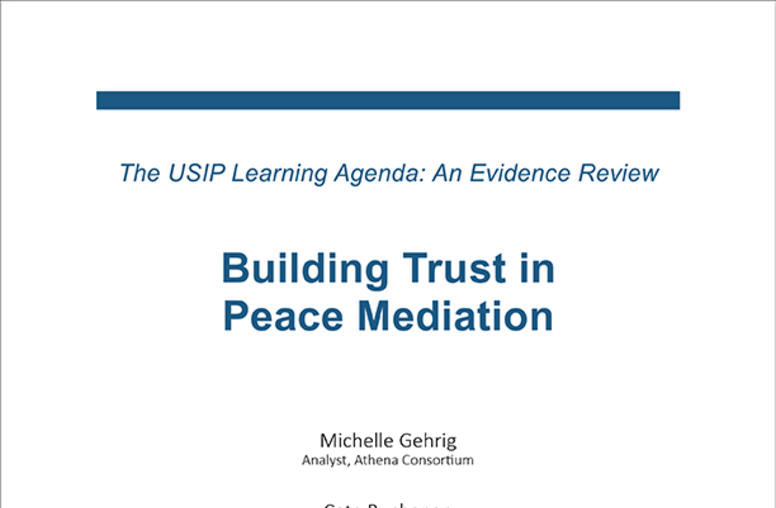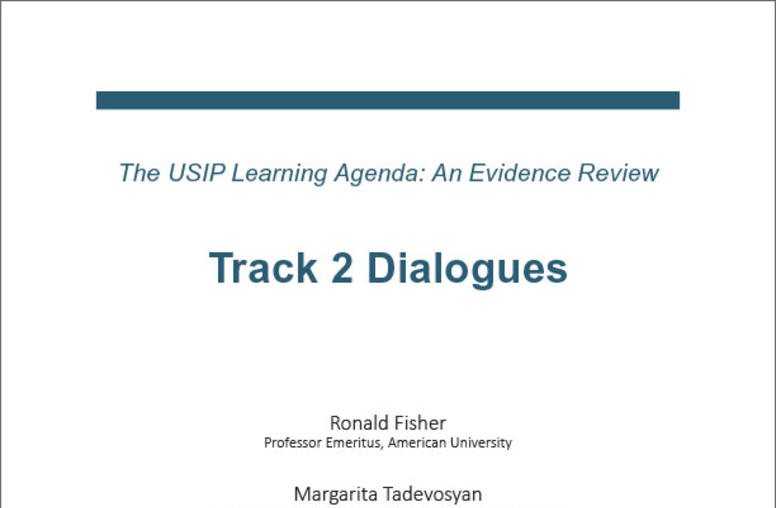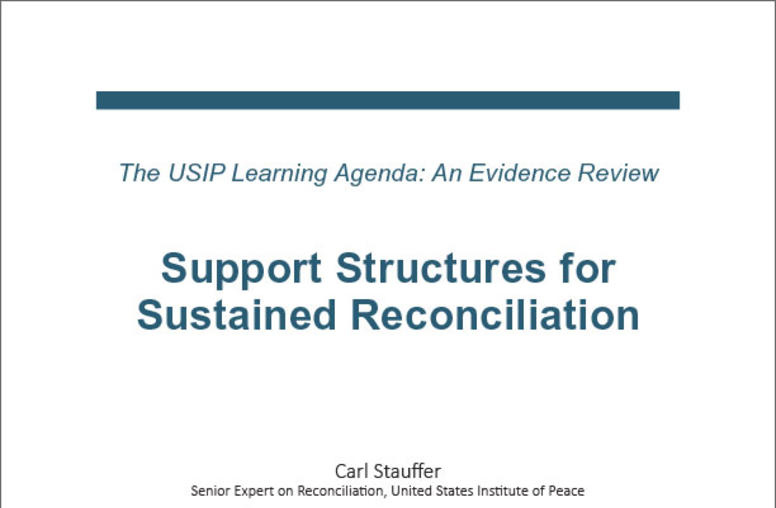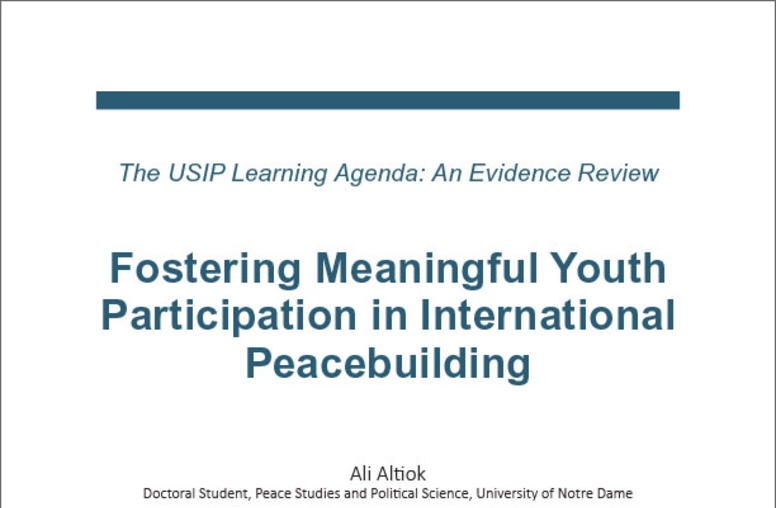In support of the Evidence Act and as part of the U.S. national security architecture, USIP is carrying out its own learning agenda. Peacebuilding has long been viewed as too messy and complex for evidence-based approaches — but USIP’s mix of research and practice belies that assumption.
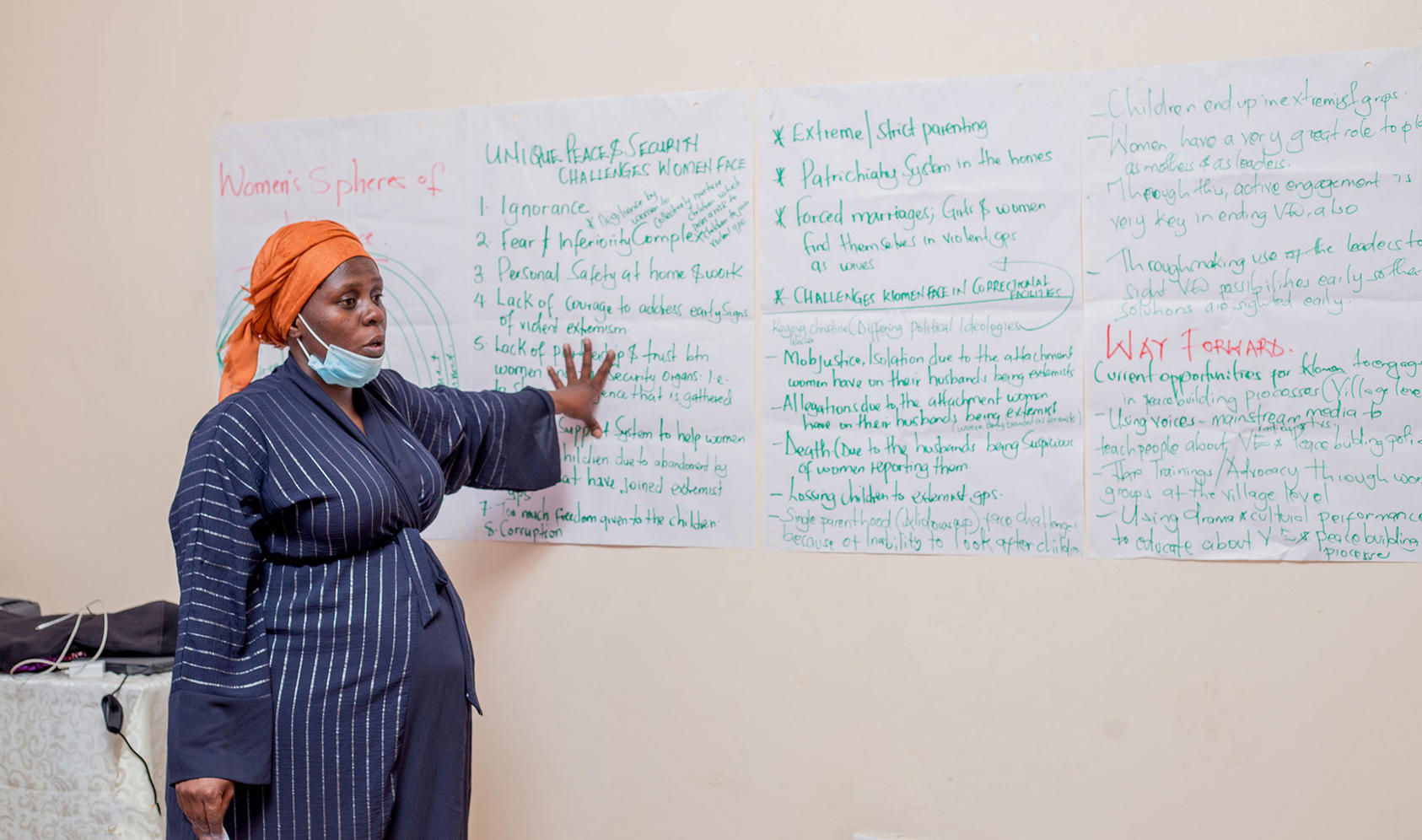
The USIP Learning Agenda is a joint venture of our thematic, regional and evaluation centers as well as a partnership between our own experts and leading academic researchers. DevLab@Penn (formerly of Duke University) is supporting all aspects of our learning agenda. Specifically, the agenda includes 12 strategic questions that we believe are critical to international peacebuilding today and that were formulated in consultation with experts within and beyond USIP:
Evidence Review Papers
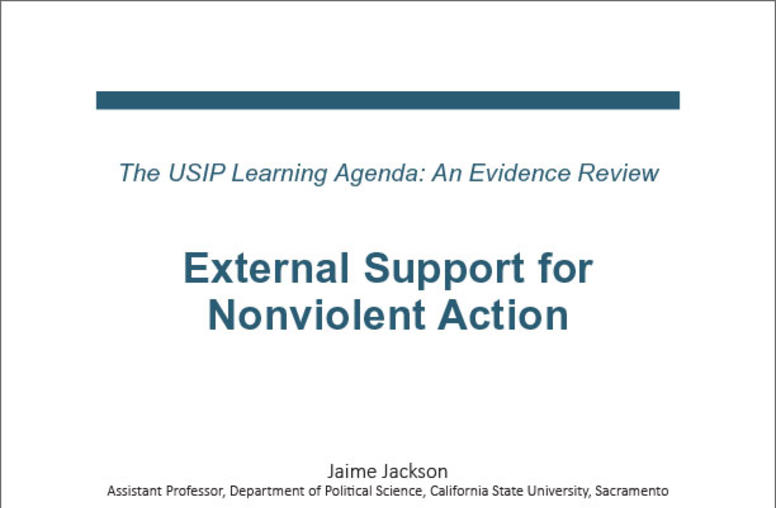
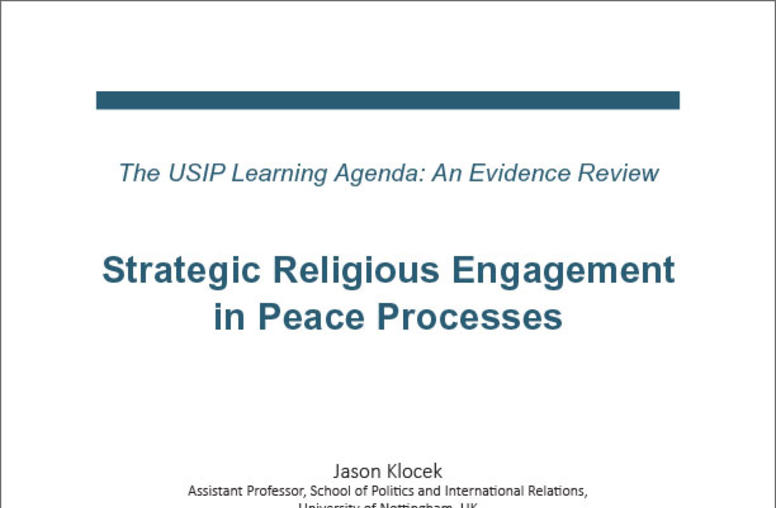
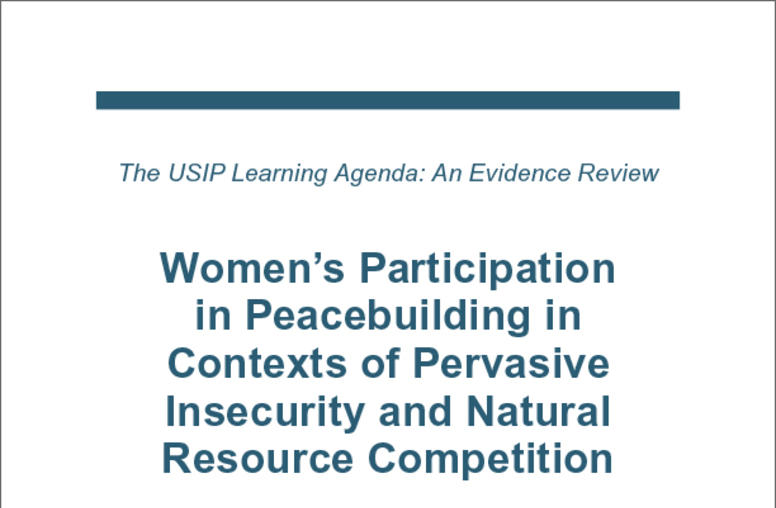
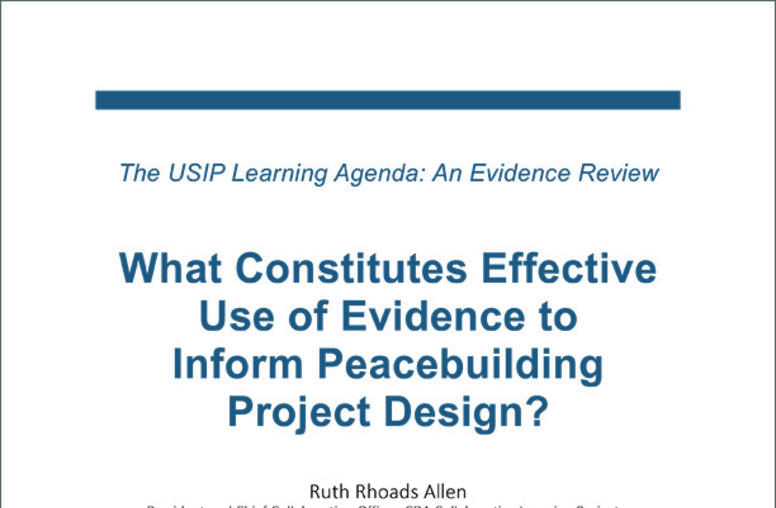
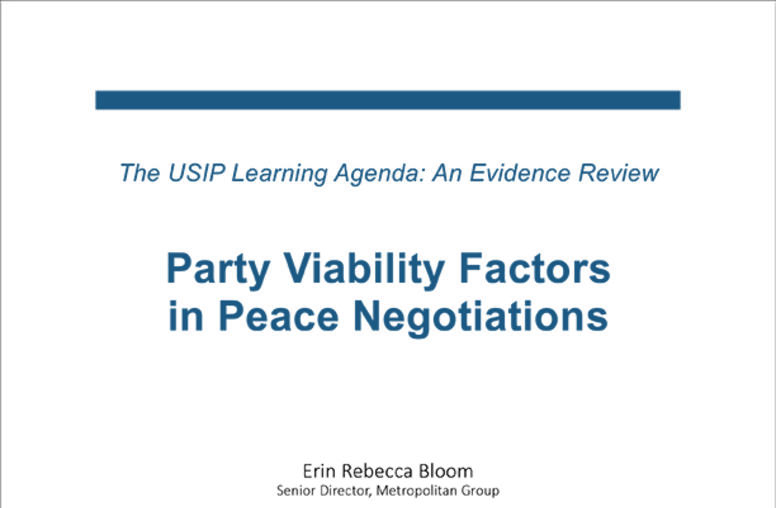
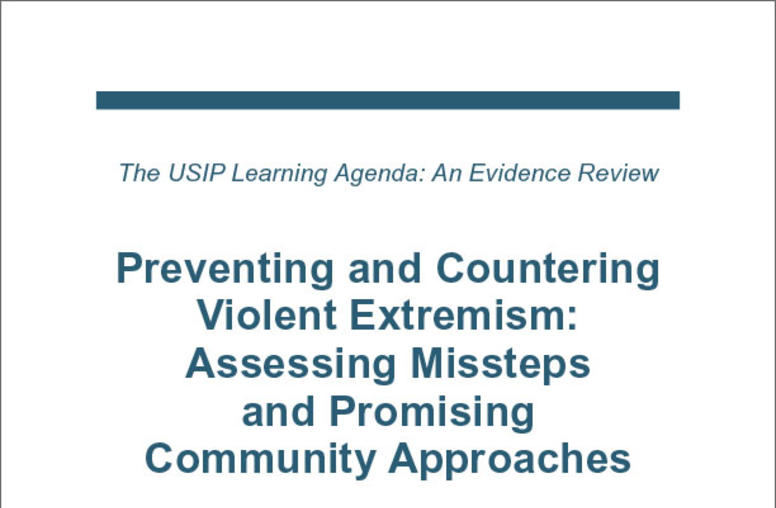
Preventing Violent Extremism
Can promoting community resilience alleviate violent extremism?
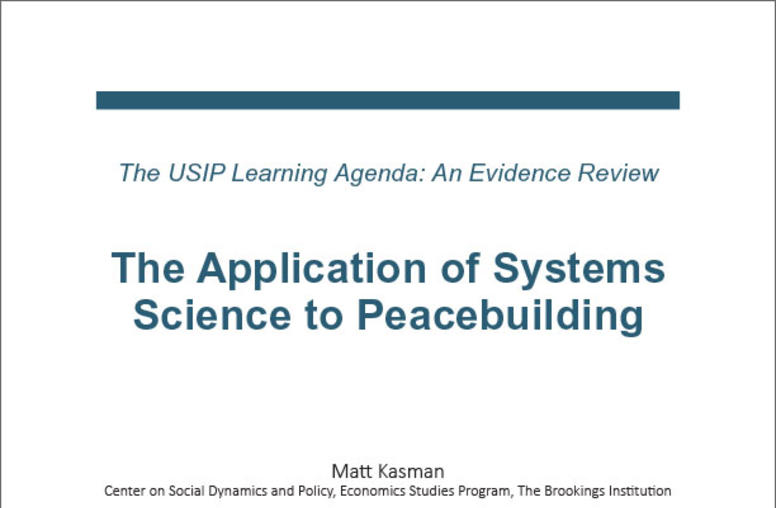
Systems Thinking
Can systems science make practical contributions that help peacebuilding practitioners and decision makers address violent conflict more effectively?
